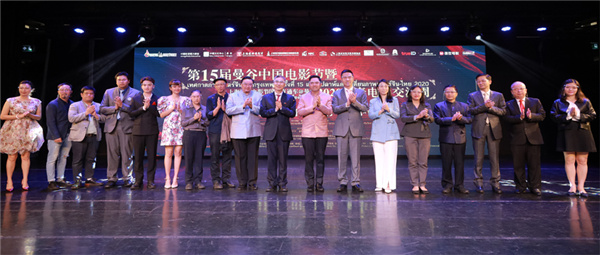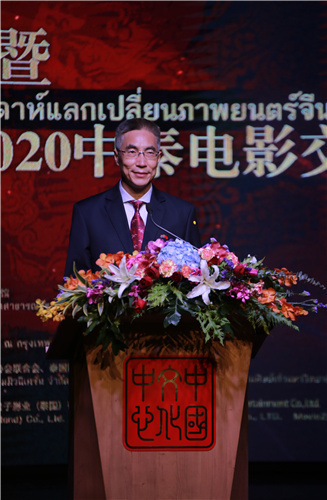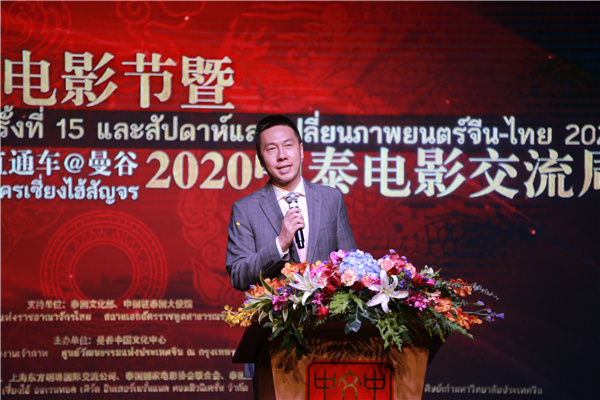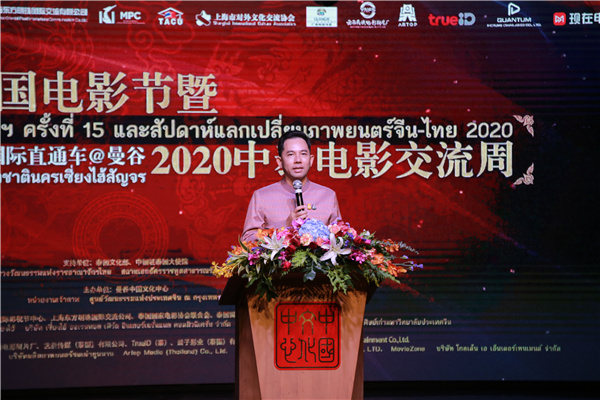 |
|
Each of the highest-grossing blockbusters from 2016 to this year has been a homegrown work, including Jiao Zi's Ne Zha (2019). |
But he also points to a "silver lining" for Chinese films attempting to break through abroad, as he believes the supply of new films globally will face a shortage due to Hollywood's sluggish recovery.
Yu suggests that Chinese companies should expand their distribution networks overseas, and he hopes domestic filmmakers can produce more influential movies, transforming the crisis into an opportunity and helping more Chinese stories reach viewers in Europe and the United States.
Recalling that he once saw Chinese hits-such as the animated blockbuster Ne Zha-being streamed on a piracy site in London, Yu calls for local decisionmakers to ally against piracy and attach more importance to copyright protection.
But for most industry insiders, the top obstacle for international cooperation remains a decadeslong struggle over what kind of stories can engage audiences from different cultural backgrounds.
Alongside Kung Fu Panda 3 as the two most commercially successful international coproductions in the last five years, The Meg-a sci-fi horror flick starring Jason Statham and Li Bingbing-grossed $530 million globally, with 1.05 billion yuan generated on the Chinese mainland.
Director Lu Chuan, who worked for Disneynature to direct the 2016 coproduction Born in China, says Hollywood's global success is built on its use of talent and resources all over the world.
"If China wants to realize the globalization of its domestically produced films, we need to cooperate more with international talent. Festivals can be a good way to increase such exchanges and create opportunities," he adds.
 |
The 15th Chinese Film Festival in Bangkok and the 2020 China-Thailand Film Exchange Week opens at the China Cultural Center in Bangkok on Oct 25, 2020. [Photo provided to Chinaculture.org] |
On Oct 25, the opening ceremony of the 15th Chinese Film Festival in Bangkok and the 2020 China-Thailand Film Exchange Week was held at the China Cultural Center in Bangkok. The event was hosted by the China Cultural Center in Bangkok and received strong support from the Chinese Embassy in Thailand and the Thai Ministry of Culture.
The COVID-19 pandemic doesn't impede the enthusiasm for cultural exchange between China and Thailand. This film festival uses live broadcast to present the opening ceremony and host the "China-Thailand Film Exchange and Cooperation Online Seminar". During the film festival, audiences can use the online platform of the China Cultural Center in Bangkok to watch films online, which greatly increases the global reach of the festival.
 |
Gu Hongxing, director of the China Cultural Center in Bangkok and China Tourism Office in Bangkok, speaks at the opening ceremony. [Photo provided to Chinaculture.org] |
Gu Hongxing, director of Bangkok's China Cultural Center and China Tourism Office, said film can not only introduce one's national culture, but also reflect unique social landscapes. Film has become an important part of cultural exchange between countries and enhance mutual understanding among people around the world.
 |
Yang Xin, Chargé d'affaires of the Chinese Embassy in Thailand, speaks at the opening ceremony. [Photo provided to Chinaculture.org] |
Yang Xin, Chargé d'affaires of the Chinese Embassy in Thailand, said since the establishment of diplomatic relations between China and Thailand 45 years ago, the mutual trust between the two countries has continued to deepen, economic and trade cooperation has expanded, cultural exchanges have become closer, and all-around cooperation has achieved fruitful results. Both China and Thailand have a vast film market. As a traditional project of cultural exchanges between China and Thailand, the Bangkok Chinese Film Festival has laid a solid foundation for film cooperation between the two countries for 15 years and will add new drive to the promotion of cultural exchanges and cooperation between China and Thailand.
 |
Itthiphol Kunplome, Thailand's minister of culture, speaks at the opening ceremony. [Photo provided to Chinaculture.org] |
Thailand's Minister of Culture Itthiphol Kunplome said in his speech the governments and people of Thailand and China have been in constant exchange. Cooperation in various fields has developed steadily, and the film festival is another important event to further promote cultural exchanges between the two countries. The people of the two countries can promote their understanding of the cultures of both sides through films, and promote friendly relations and cooperation in other perspectives.